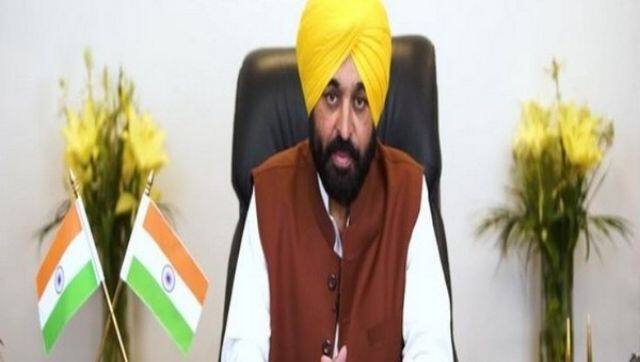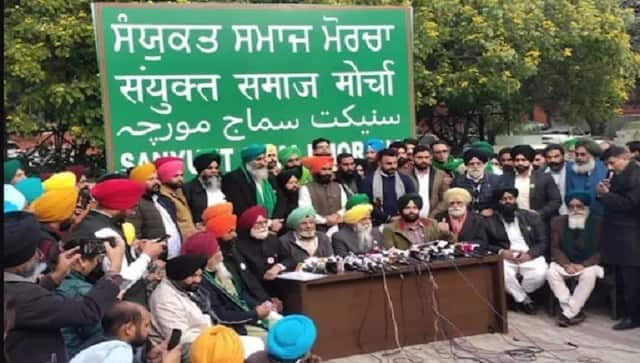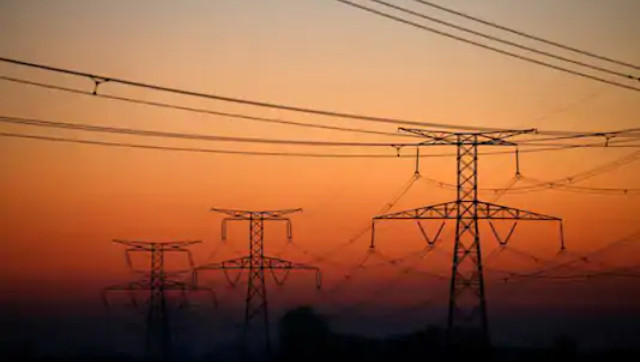On Monday, 27 lakh power sector employees and engineers protested against the Electricity (Amendment) Bill, 2022, which was introduced in Lok Sabha on Monday. A Bill to amend the Electricity Act to allow non-discriminatory open access to distribution networks of power suppliers was introduced in Lok Sabha on Monday amid protests by the Opposition, which claimed that it seeks to take away certain rights of state governments. Introducing the Bill, power minister RK Singh urged Lok Sabha Speaker Om Birla to refer it to a parliamentary standing committee for wider consultations to address Opposition concerns. The Bill was then referred to the standing committee. But what does the Bill say? Why has it led to protests? Let’s take a closer look: The Electricity (Amendment) Bill, 2022 The Bill is aimed at allowing privatisation of electricity on the lines of communication. As per the Centre, if the Bill is passed in both the Houses, customers will have the option to choose the supplier of electricity just like one can choose for telephone, mobile and internet services. The Bill seeks to amend section 42 of the Electricity Act to facilitate non-discriminatory open access to the distribution network of a distribution licensee. Further, the bill seeks to amend section 14 of the Act to facilitate the use of distribution networks by all licensees under provisions of non-discriminatory open access with the objective of enabling competition, enhancing efficiency of distribution licensees for improving services and ensuring sustainability of the power sector. The bill also provides for inserting a new section 60A in the Act so as to enable management of power purchase and cross-subsidy in case of multiple distribution licensees in the same area of supply. [caption id=“attachment_11029351” align=“alignnone” width=“640”]  Parliament of India. ANI[/caption] The bill also seeks to amend section 62 of the Act so as to make provisions regarding graded revision in tariff over a year and for mandatory fixing of the maximum ceiling as well as minimum tariff by the Appropriate (electricity regulatory) Commission. The draft law also provides for amending section 166 of the Act so as to strengthen the functions to be discharged by the Forum of Regulators. The bill will also amend section 152 of the Act so as to facilitate decriminalisation of offence as it would be mandatory to accept compounding.
It will also amend section 146 of the Act to convert the rate of punishment from “imprisonment or with fine” to “fine”.
As per Indian Express, the amendment Bill to the Electricity Act of 2003 has been introduced multiple times from 2014 onwards, almost on a yearly basis. Why are people protesting the Bill? State employees groups are worried among other things about the passing of the Bill resulting in major losses to government discoms, job losses and a few private companies establishing a monopoly in the power sector. Punjab State Electricity Board Engineers Association (PSEBEA) chief patron told Indian Express the Bill in its current form would lead to a major loss for government distribution companies, eventually helping to establish the monopoly of a few private parties in the country’s power sector.
PSEBEA general secretary Atwal added that it would not impact quality of service of price.
“After all, about 80 per cent of the cost of supply is on account of power purchase, which will be the same for all distribution licensees operating in an area. Besides, having different retailers will open a plethora of operational issues,” Atwal said. Atwal explained, “The United Kingdom is a prime example. As per a report of UK auditors, due to adoption of such faulty models the consumers had to pay in excess of 2.6 billion pounds. The cost of such transfers was charged to the ordinary consumer. While the private companies failed, consumers were hit the most.” [caption id=“attachment_11034291” align=“alignnone” width=“640”]  Telangana workers protesting the Bill. News18[/caption] As per CNBC, protests on Monday were held at Hyderabad, Chennai, Trivandrum, Bangalore, Vijayawada, Lucknow, Patiala, Dehradun, Shimla, Jammu, Srinagar, Chandigarh, Mumbai, Kolkata, Pune, Vadodara, Raipur, Jabalpur, Bhopal, Ranchi, Guwahati, Shillong, Patna, Bhubaneswar, Jaipur, as per the report. The Samyukta Kisan Morcha (SKM) has warned the Centre against passing the Bill, as per the report. Labour unions and the SKM are of the view that if the Bill is passed, free power for farmers and Below Poverty Line population will eventually become a thing of history, as per Indian Express. ‘Claim of multiple choice misleading’ The All India Power Engineers Federation (AIPEF) chairman Shailendra Dubey on Saturday said the claim of providing a choice of multiple service providers to power consumers in the Electricity Amendment Bill 2022, is “misleading” and will make state-run discoms loss making entities. In a letter to Prime Minister Narendra Modi, Dubey demanded that the bill be referred to the Parliamentary Standing Committee on Energy for wider consultation. When asked about the government’s claim of providing consumers choices like mobile phone sim cards in the name of multiple distribution licensees, Dubey told PTI, “the very claim is misleading”. “As per the bill, only government discoms will have universal power supply obligation therefore private licensees will prefer to supply the electricity in profit making areas only i.e.industrial and commercial consumers.” Thus profit making areas will be snatched from government discoms and government discoms by default will become loss making companies and in the coming days will not have money to purchase electricity from generators, he said.
“The government discoms network will also be handed over to private licensees at throw-away prices,” he said.
Dubey explained that “Cost of electricity includes 85 per cent cost of power purchase agreements. Since power purchase agreements are for 25 years therefore the cost of electricity is not going to be reduced. Therefore the promise of competition and cheaper electricity to consumers is a farce”. He further explained that 85 per cent of consumers are farmers and domestic consumers and all these consumers are getting subsidized electricity. “There cannot be any competition in such loss making subsidized consumers. Therefore multiple licensees will not be the consumers’ choice. Actually this will be the suppliers’ choice. Private licensees will be operating only in profit making areas,” he pointed out. What does the Opposition claim? The Opposition claims the Bill is an attack on states’ rights and intends to weaken the foundations of the federal structure. Punjab chief minister Bhagwant Mann on Monday said the Centre introducing the Electricity (Amendment) Bill 2022 in Parliament was an attack on the constitutional rights of the states. [caption id=“attachment_10920241” align=“alignnone” width=“640”]  Punjab Chief Minister Bhagwant Mann. ANI[/caption] He accused the Union government of “weakening” the foundations of the federal structure through “such nefarious designs”. Mann said it was another attempt of the central government to “undermine” the authority of the states. He said the Centre should not consider the states as puppets. The states will not sit silently against this attempt of the government of India to “dilute the federal spirit of our democracy,” Mann said in a statement issued here. He said the states will fight from the road to Parliament to protect their rights. The Union government should have consulted the states before introducing any Bill related to the power sector, the Punjab chief minister said. “Instead, this Bill is being imposed on the states, which is a direct attack on the federal structure,” he charged. Questioning the Centre’s intent, Mann said when the states provide electricity to people on their own, then why their feedback was not sought while introducing the Bill in Parliament. Citing the example of Punjab, he said farmers in the state are being given free electricity for agriculture purposes. Likewise, free power supply is also being provided to domestic consumers and if the Centre is amending the Electricity Act as per its own conditions, the farmers and other sections will get a big blow as states like Punjab will not be able to continue such pro-people initiatives, he said.
Mann said the Centre should “desist from playing with fire”.
It should not repeat the previous “mistake” of implementing the three “draconian” agricultural laws, he added. Mann asked the Union government to reconsider its move as the people of the country will never tolerate such “unilateral” decisions. He demanded that the central government should take feedback from the states before enacting any law in the power sector. SP member N K Premachandran, Congress members Manish Tewari and Adhir Ranjan Chowdhury, CPI(M)’s M A Arif, Trinamool member Saugata Roy and DMK leader T R Baalu said the draft legislation was against the federal structure of the Constitution. Premachandran said electricity was on the concurrent list and it was the “bounden duty” of the Centre to have “effective consultations” with state governments before introducing the Bill. Tewari said the Bill sought to allow multiple private companies to provide electricity in the same area, a provision that could lead to “privatisation of profits and nationalisation of losses”. He contended that the legislation also sought to reduce the role of the Centre in distribution of electricity. Roy and Arif said the Bill was contrary to the assurances given by the Modi government to the Samyukta Kisan Morcha, which had laid a year-long siege to the national capital demanding roll back of agricultural reforms and shelving of proposed amendments to the Electricity Act. [caption id=“attachment_10460031” align=“alignnone” width=“640”]  The SKM, an umbrella body of 40 farm unions, had spearheaded a year-long agitation against the Centre’s three farm laws. News18[/caption] Baalu said the Tamil Nadu government was giving free electricity to farmers for the past several years and the proposed amendments could affect “poor farmers” who receive free power. What was the Centre’s response? The power minister claimed the opposition members were indulging in “false propaganda” against the Bill. “The farmers will continue to get free power. There will be no roll back of subsidy,” Minister Singh said amid calls for wider consultations on the measure. “We have consulted the states and other stakeholders. This Bill is pro-people and pro-farmers,” Singh said as he introduced the Bill. Opposition members demanded a division on the motion moved by the minister to introduce the Bill, which was rejected by the Speaker. “You can seek division only from your respective seats and not from the Well,” the Speaker said.
The Opposition resorted to sloganeering for a while and then staged a walkout from Lok Sabha.
Impact Shorts
More ShortsOn Sunday, the Shiromani Akali Dal (SAD) chief Sukhbir Singh Badal, the one-time ally of the BJP, urged Prime Minister Narendra Modi to withdraw the Electricity (Amendment) Bill 2022 to allow for widespread consultation with all stakeholders including the states, farmers and farm unions. He had said when the central government decided to repeal the three farm laws on December 9, 2021, it had assured that it would not go ahead with enacting the Electricity (Amendment) Bill, 2022 without holding prior consultation with all stakeholders including the states, political parties, farmers and farmer associations. With inputs from agencies Read all the Latest News , Trending News , Cricket News , Bollywood News , India News and Entertainment News here. Follow us on Facebook, Twitter and Instagram.


)

)
)
)
)
)
)
)
)



